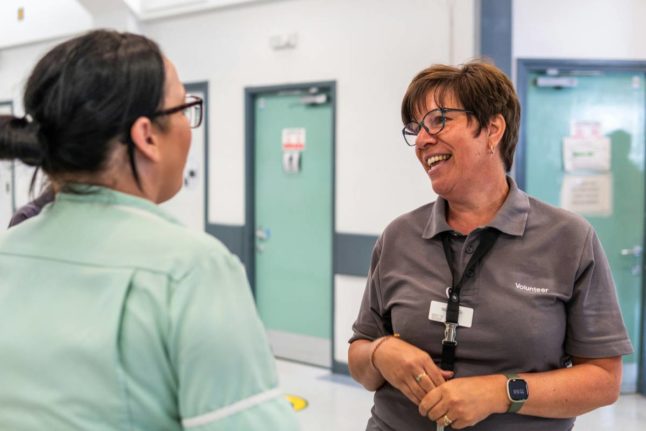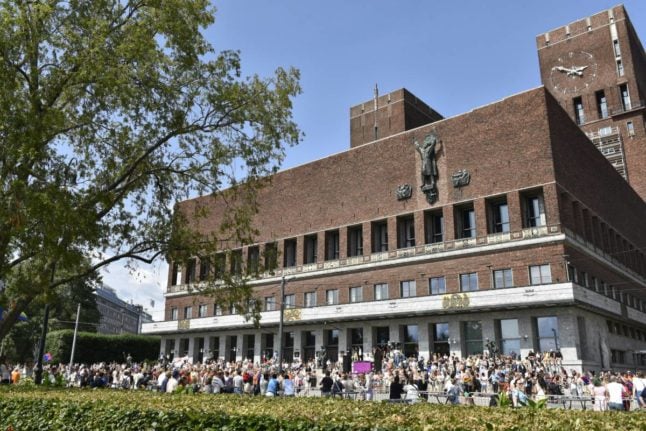Norway has around 100,000 volunteer organisations, each offering a number of opportunities to get involved and contributing to a broader sense of community engagement.
From singing in choirs and helping immigrants integrate to organising children’s theatre productions and charity drives, these organisations serve as important platforms for collective action.
READ MORE: Five unwritten rules that explain how Norway works
The contributions made by volunteers amount to billions of kroner in societal value, underscoring their significant role in Norwegian society.
However, volunteering isn’t just about altruism; it can also be a pathway to personal growth and integration, especially for newcomers to the country.
Immersing yourself in volunteer work can provide you with valuable experience, help you improve your skills, enhance your Norwegian language proficiency, and develop a deeper understanding of Norwegian culture and the way things work in the country – as long as you know where to find the right opportunities.
Finding volunteer opportunities in Norway
If you’re keen on starting a volunteering gig in Norway, there are several places where you can get a good overview of the available options.
Frivillighet Norge, a collaboration platform for volunteering organisations in Norway, boasts over 300 member organisations. By searching their online member directory, you may discover organisations aligned with your skill set, passions, and needs.
Norges Frivilligsentraler, an interest organisation and resource centre for volunteer centres in the country, is another excellent place to check out. These centres, often affiliated with municipal administrations, offer tailored volunteering options depending on the needs of specific communities. You can also visit your nearest centre in person to get a better insight into volunteering opportunities in your area.
Frivillig.no is a comprehensive platform for volunteering opportunities across Norway. With hundreds of listings from various organisations, it’s a real treasure trove for prospective volunteers. You can use the service to filter opportunities based on your fields of interest, skills, or geographic location, which is very useful and saves time.
Along with the three abovementioned platforms, which are great aggregators you can use to inform your choice, you can also reach out to organisations directly.
Major organisations such as the Norwegian Red Cross have structured volunteer programs in place, and they’ll point you in the right direction after you establish contact with one of their members involved with their volunteering efforts. At times, there will be limited volunteering opportunities available for people who don’t speak Norwegian, but know that the Red Cross, for example, also offers Norsktrening, meetups where you can practice speaking Norwegian – which allows you to benefit from their offer early on, and then giving back to the community once you start to master the language.
READ MORE: Is Norway still an attractive country for foreign workers?

Getting started
Once you’ve identified the volunteer opportunity (or several of them) that you’d like to engage in, contact your organisation of choice.
Fill out that contact form on Frivillig.no, contact a member organisation on Frivillighet Norge, or visit your local volunteer centre. Regardless of how you do it, it is important to take the first step and initiate contact.
If you don’t get the position right away, don’t give up – ask the organisation whether they have anything else that might be a good fit for both sides (and remember to continue working on your Norwegian language skills, as proficiency in Norwegian will open up more opportunities both volunteering and work-wise).
READ MORE: The seven stages of learning Norwegian every foreigner goes through
While volunteering should be mostly about giving, remember that it’s also about receiving and engaging with your local community.
While you help others, you’ll also get valuable experiences, develop skills that might help you get ahead in the Norwegian job market, and establish connections to help you integrate into the communities you serve.
Volunteering is a chance to roll up your sleeves, get your hands dirty, and really connect with people in a meaningful way. And hey, let’s be real – while you’re out there making a difference, you’re also likely to have some fun (and even make a friend or two).



 Please whitelist us to continue reading.
Please whitelist us to continue reading.
Member comments